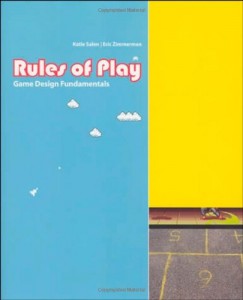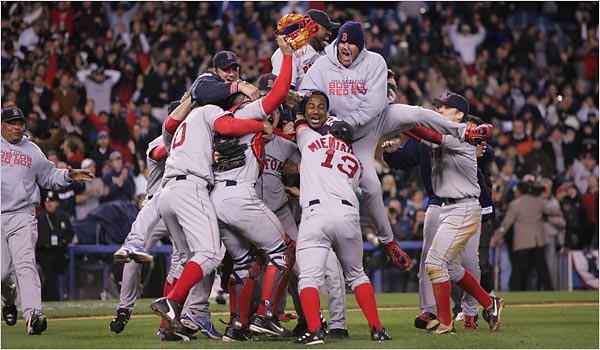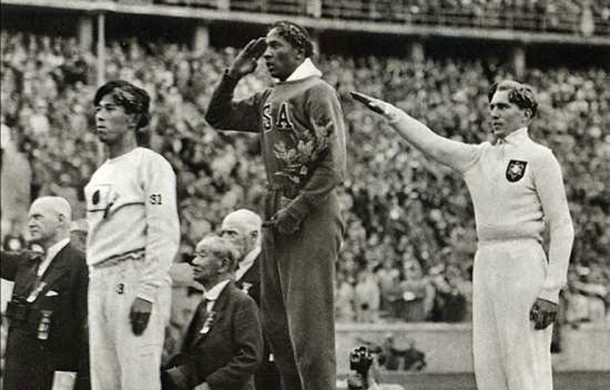Game Design And The Erosion of Meaning
 My undergraduate major was religious studies. After receiving my letter of acceptance from Haverford College, my parents, who were both ardent supporters of the values of a liberal arts education, encouraged me to explore different classes as a student. “Do not worry about what your major will be,” they told me, find a professor you like, and keep taking classes with her. And so, at that small Quaker school in Pennsylvania, into the Religion Department I landed. This was many years ago now, but like all good knowledge, my readings, lectures and discussions with my professors and cohort have always stuck with me.
My undergraduate major was religious studies. After receiving my letter of acceptance from Haverford College, my parents, who were both ardent supporters of the values of a liberal arts education, encouraged me to explore different classes as a student. “Do not worry about what your major will be,” they told me, find a professor you like, and keep taking classes with her. And so, at that small Quaker school in Pennsylvania, into the Religion Department I landed. This was many years ago now, but like all good knowledge, my readings, lectures and discussions with my professors and cohort have always stuck with me.
One specific concept that resonated with me as a young student then was the ubiquity and diversity of meaning in culture. We studied sacred texts, sacred artifacts, and sacred ritual always in the context of religious communities, careful always to take pains to understand to the best of our ability how and why they were meaningful, not in an abstract sense, but as parts of people’s lives. The study of religion, different in some ways from theology, is fundamentally anthropological, as religion is always rooted in the lives of the practitioners. The very concept of “meaning” and “meaningfulness” is deliciously broad, abstract, nearly meaningless, complex, and, at times, vexingly so. Studying religion, I was thrown headfirst into the deep end of the semiotic and sociolinguistic pool, and it was challenging to stay afloat. I was buoyed by excellent professors who reminded me that the search for meaning in religion was not a puzzle to be solved, but a painting to be viewed, a song to be heard, a space explored. Religion is not so easily decoded, the signification not one-to-one, and polysemy is the norm.
Games people — designers, academics, aca-designers, bloggers, tweeters, journalists — all seem to talk and write about meaning often. Meaning spurs the liveliest debates, stokes the hottest fires, but what does it mean for a game to be meaningful?
Some game design-focused folks write about meaning and meaningfulness in games in terms of systems of cause and effect. Meaning, for them, is when any action leads to change. An action that does not change the state of the machine, the system of the game (digital or otherwise), is considered at best “less meaningful” and at worst “meaningless.” To complicate matters, even if an action does have a systemic outcome, if that change is not communicated through feedback somehow, it becomes a “less meaningful” action.
Frank Lantz recently wrote about what he sees as a problem with voting in large-scale elections. He writes, “The essential problem is that, in a group of a million or more people my individual vote doesn’t have a meaningful impact on the outcome.” Lantz suggests that an individual not voting, or even switching a single vote, would not change the outcome. He continues “The impact of your individual vote is so small compared to the scale of the overall election that it is utterly insignificant.” Coming from the perspective of an academic and as an experienced designer, he points out, “This should trigger your game designer alarm system, because one of our important jobs is making systems where choices and actions do matter. Meaningful actions and meaningful choices are the bread and butter of good game design, so when we see a choice that doesn’t matter we should want to take a closer look.”
Lantz got critiqued pretty hard on twitter and online for this blog post, and somewhat unfairly. I think in the full post he does point out that voting is performative, and that some of the meaning of voting comes from “expressing idealized versions of our values” which makes us feel good. While he’s somewhat pessimistic about this part of the process, he does consider the experience of voting outside the mechanical system of the electoral process. At the heart of Lantz’s criticism of the voting process, however, is the belief that if actions don’t deliver discernable changes to the system, they suffer a loss of meaning.
 The popular Rules of Play, which is a must-read text on game design, has quite a long section on the subject of meaning and meaningful play with games. Salen and Zimmerman emphasize the importance of meaning to game design, writing and repeating “the goal of successful game design is the creation of meaningful play.” For the two designers, meaningful play in games is also very much tied to the notion of cause and effect, in and between what they call “actions” and “outcomes.” They describe two kinds of meaningful play, descriptive and evaluative, with the former residing in the relationship between the action and the outcome, and the latter functioning on a second order, when the relationship between actions and outcomes are discernable and integrated into the context of the game. Like Lantz’s post, I do not believe that Rules of Play ever suggests that meaning cannot exist beyond the construct of cause and effect, between actions and outcomes. Good designers, as all three authors are, understand the complexity and multi-dimensionality of meaningful experiences with games.
The popular Rules of Play, which is a must-read text on game design, has quite a long section on the subject of meaning and meaningful play with games. Salen and Zimmerman emphasize the importance of meaning to game design, writing and repeating “the goal of successful game design is the creation of meaningful play.” For the two designers, meaningful play in games is also very much tied to the notion of cause and effect, in and between what they call “actions” and “outcomes.” They describe two kinds of meaningful play, descriptive and evaluative, with the former residing in the relationship between the action and the outcome, and the latter functioning on a second order, when the relationship between actions and outcomes are discernable and integrated into the context of the game. Like Lantz’s post, I do not believe that Rules of Play ever suggests that meaning cannot exist beyond the construct of cause and effect, between actions and outcomes. Good designers, as all three authors are, understand the complexity and multi-dimensionality of meaningful experiences with games.
But the post, and the passages from Rules of Play, do exemplify a concern I have about a shift in our understanding of meaning and meaningfulness in games. Perhaps because the vocabulary and theorizing around the design of games is somewhat new, or perhaps because of the emergence of computation and digital games, the concept of “meaningful” seems to have been conflated with “consequential,” and that collapse gives me pause. I have spent the bulk of my academic life looking for, and trying to remain open to meaning. Studying religion, I embraced plurality in meaning (ironically enough given that so many of the ills of religion in society are born from the rigidity of dogma). I accept, and know full well, from my limited experience as a designer, that consequence and feedback are important principles of games. Prayer, or silent communal worship, depending on who you ask, may not be a very good game. But I reject wholly any suggestion that those experiences are somehow less meaningful because of a lack of immediate consequence or immediate feedback.
 Of course games are polysemous, and of course games have meaning in the systems, and around them. I spend much of my time thinking about sports, that very old category of games for which examples of the diversity of meaning are both obvious and abundant. When Jesse Owens out-jumped, and out-ran everyone at the Berlin olympic games in 1936, it had consequence, he won medals. But as Owens, an African-American competing and winning in Nazi Germany, stood at the medal podium, it also had, and still has meaning. When the Red Sox overcame a 3-0 game deficit in the 2004 American League Championship Series, beating the Yankees in four straight games and moving on to win the World Series, it had consequence, the Red Sox were champions. It also had, and still has meaning, the Red Sox, at last, were champions. When Bobby Fischer, at the ripe age of 13, sacrificed his queen to to Donald Byrne, his actions had consequence, he went on to win The Game of the Century. With his victory was an abundance of meaning, emanating from the events of the game, and wrapped in the context of the world and culture in which the game was played.
Of course games are polysemous, and of course games have meaning in the systems, and around them. I spend much of my time thinking about sports, that very old category of games for which examples of the diversity of meaning are both obvious and abundant. When Jesse Owens out-jumped, and out-ran everyone at the Berlin olympic games in 1936, it had consequence, he won medals. But as Owens, an African-American competing and winning in Nazi Germany, stood at the medal podium, it also had, and still has meaning. When the Red Sox overcame a 3-0 game deficit in the 2004 American League Championship Series, beating the Yankees in four straight games and moving on to win the World Series, it had consequence, the Red Sox were champions. It also had, and still has meaning, the Red Sox, at last, were champions. When Bobby Fischer, at the ripe age of 13, sacrificed his queen to to Donald Byrne, his actions had consequence, he went on to win The Game of the Century. With his victory was an abundance of meaning, emanating from the events of the game, and wrapped in the context of the world and culture in which the game was played.
Voting may not have immediate or direct consequence, and certainly not the consequence that is often promised of it. But voting, as many others pointed out after Lantz’s post, does have gobs of meaning. Games are often designed to have systems wherein actions have consequence, but this is certainly not the only, or even the most common way for games to have meaning.
I want to be very clear, nobody, and especially not the authors quoted in this post, is suggesting or has suggested that games aren’t meaningful for lots of reasons, and in many ways. I am not trying to make straw-people of them, or trying to be overly reductive of their arguments. This post is responding to an ideology I’ve occasionally noticed that can be characterized by those examples — in which “meaning” is eroded, conceptually reduced to a measure of cause and effect.
Maybe I’m being unnecessarily pedantic, bothered so by semantics.
Of course, we are talking about meaning here, right?

